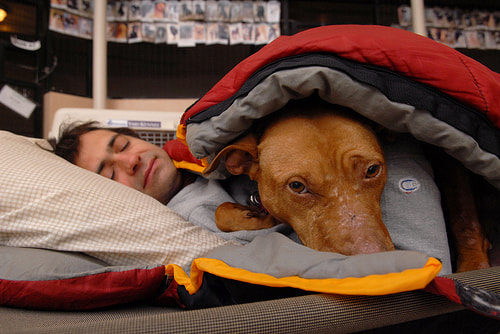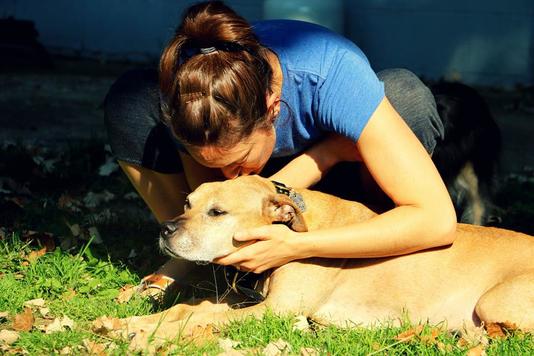|
On April 27, 2007, law enforcement authorities converged on a property at 1915 Moonlight Road in Surry County, Virginia, to execute two drug search warrants. What they found on this rural property quickly became the subject of intense national discussion and drew a great deal of attention to pit bull type dogs. Because of the involvement of then NFL football player Michael Vick in a multi-state dog fighting operation, the dogs soon came to be know as “the Vick dogs.” The dogs became the subject of a civil legal proceeding regarding their disposition as property. The following wording is taken from the Verified Complaint regarding the dogs which was filed in the United States District Court for the Eastern District of Virginia, Richmond Division (federal court) on July 2, 2007: On or about April 25, 2007, state investigators executed two search warrants at 1915 Moonlight Road, Smithfield, Virginia. During those searches, the officers recovered and observed numerous items associated with an illegal animal fighting venture, including approximately 54 pit bulldogs. Many of the pit bulldogs recovered or observed in the search had scars and injuries consistent with injuries sustained in dog fighting.Additional items were recovered and observed. These items include: a blood-stained fighting area; animal training and breeding equipment, including a "rape stand," a "break" or "parting" stick, treadmills and "slat mills;" assorted paperwork documenting involvement in animal fighting ventures; and performance enhancing pharmaceuticals commonly used to increase fighting potential in dogs trained for fighting, as well as to keep injured dogs fighting longer. On August 31, 2007, the Court entered a judgment forfeiting the seized dogs to the United States. Although some large national organizations were calling for the dogs to be destroyed (namely PETA and HSUS), they were not. On October 16, 2007, the Court granted a motion by the government to appoint Professor Rebecca J. Huss as the guardian/special master to evaluate the permanent disposition options for the forfeited pitbulls. The recommendations were adopted by the court and the dogs went to a variety of organizations: 22 dogs went to the Best Friends Animal Society Sanctuary in Utah, 10 went to Bad Rap in California, 3 went to the SPCA of Monterey County in California, 1 went to Our Pack in Virginia, 4 went to the Richmond Virginia Animal League, 3 went to Recycled Love in Maryland, 3 went to the Georgia SPCA, 1 went to Animal Farm Foundation in New York and 1 went to Animal Rescue of Tidewater. (Of the 52 dogs taken from the Vick property, 2 died while in government custody and 2 others were euthanized due to physical/emotional suffering) It seems since the time of the initial seizure of the dogs and we learned about Vick's personal participation in the dog fighting operation and killing dogs he has been in the news regularly. I will not recount the history here. He was last in the news in late August when it was announced that he had been named as sports analyst for Fox Sports. Prior to that, he was in the news in July when he was inducted into the Virginia Tech Sports Hall of Fame. I often read statements by people to the effect that Vick “did his time” and “paid his debt to society.” I beg to differ. We all know that Vick spent some time in prison. What many people either don't realize, or refuse to acknowledge, is that he did time in federal prison for federal crimes related to engaging in a criminal enterprise which crossed state lines. The Surry County District Attorney at the time of the dogs were seized and the scope of the dog fighting operation was discovered was Gerald Poindexter. He chose to not prosecute Vick for the state law crimes which included his personal participation in torturing and killing dogs. If you have never read Jim Gorant's book which sets forth what really happened at 1915 Moonlight Road and what happened after the dogs were seized, I cannot encourage you strongly enough to do so. "The Lost Dogs: Michael Vick's Dogs and Their Tale of Rescue and Redemption" is an incredibly well researched book which holds a place of honor in my own animal welfare library. For me, Vick's “debt to society” will never be paid because he was never fully prosecuted for his crimes. I realize that he has a right to earn a living and feed his family. I do not believe that he should enjoy any type of celebrity status in our society or that he should be put forth as a role model of any kind. When I think about the ten years since the dogs were saved, I choose to focus on the dogs and not on the thugs who used dogs for their own entertainment and financial purposes, leading to abuse, neglect and death. Although there were calls for their destruction, the 48 dogs who went on the organizations approved by the court proved to be far more resilient and far more forgiving than anyone would have imagined. They are examples that even when pit bull terrier type dogs have been subjected to the worst that humans have to offer, they are capable of defying the media hype of them as super-predators and of overcoming incredible abuse. Many of the dogs saved on April 27, 2007, have since passed away. To learn the history of all of the dogs, please consider reading Jim Gorant's recently published book, “The Found Dogs: The Fates and Fortunes of Michael Vick's Pit Bulls, 10 Years After Their Historic Rescue.” I don't want to spoil the book for you. I will say that of the 48 dogs placed, "17 passed their CGC (Canine Good Citizen test), seven were certified as therapy dogs and more than half have made public appearances to support anti-breed legislation or to raise awareness and fight discrimination. At least that many have also been used in training programs and foster homes to act as role models and help calm other dogs." We've learned a lot about pit bull type dogs in the last ten years. It has obviously not been enough as municipalities continue to enact and enforce BSL (Breed Specific Legisaltion) and BDL (Breed Discriminatory Discrimination), objectifying perfectly good family dogs who have done nothing wrong while perpetuating myths about the dogs which are not based in science. The pit bull ban is still in effect in Denver, Colorado. It is also still in effect in Miami-Dade County, Florida, although a federal lawsuit challenging the legality of the ban was filed on October 11, 2017. I'll be watching that case closely and genuinely hope the ban is repealed. To learn more about fact-based research related to pit bull type dogs and dog aggression, I encourage you to visit the website for the National Canine Research Council. I relied heavily on materials published by the organization in my original 2009 edition of my research paper advocating adoption of pit bull type dogs and the revision of my paper published in 2014. If you'd like to read an incredible law review article on the topic of pit bull type dogs and Breed Specific Legislation, Katie Barnett of the Barnett Law Office is published here. Katie and I first interacted during the time when the criminal and civil cases about the former Vick dogs were pending. I consider Katie another one of my go-to subject matter experts; her law review article is incredibly comprehensive and goes far, far beyond the scope of my research paper. In honor of National Pit Bull Awareness Month, let's all take a moment to reflect on the dogs saved more than 10 years ago, on those dogs still being unfairly judged due to media hype and on the people who love them dearly - who know the truth about the capacity of these dogs to love and be loved. (image of Molly courtesy of the Best Friends Animal Society; image of Hector courtesy of Roo and Clara Yori)
0 Comments
Your comment will be posted after it is approved.
Leave a Reply. |
AuthorI am an animal welfare advocate. My goal is to help people understand some basic issues related to companion animals in America. Awareness leads to education leads to action leads to change. Archives
July 2024
Categories
All
image courtesy of Terrah Johnson
|




 RSS Feed
RSS Feed